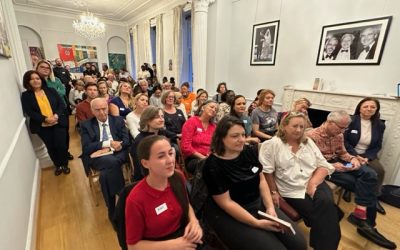This blog is about giving advice on how to get a job in the profession you have trained for. Its about throwing light on the path ahead. Camila writes here of her experience of the UK system and how she got it to work for her. It’s full of practical advice. If you have a story about how joined your profession, please share it under comments
Camila’s story
This blog is about sharing lessons about what you need to do to work as a professional in the UK, there are great structures in the UK but you have to know about them and anyone coming from another country might just stumble across them.
My story is that I am a qualified to MSc level in a profession that has a serious skill shortage. I now have a good job because I used all the support available but if I had understood the way it works, I might have done it quicker so here are the lessons I have learnt:
The advice below doesn’t apply if you are in the medical profession, there are different processes and sometimes more exams.
Most importantly, you need to know about UK NARIC. (Naric.org.uk) especially if you come from outside the European Union. This is a national agency which performs the recognition and comparison of international qualifications and skills on behalf of the UK Government. NARIC looks at your qualifications in your country and issues a Statement of Compatibility which shows that your qualifications are equivalent to the ones in the UK. Before you take your qualifications to NARIC, you need your certificates translated and it must be by an official translator. It charges you per page and if you contact some studies agencies you can find better prices and deals for the translations.
It’s also really worth joining your professional institution or association. For many jobs, you need to be a member of your professional institute. Take into account that in your profession you might have more than one professional institutions to join depending on the path you want to follow. In my case, because the Institute only met twice a year, they took a year to approve my membership. I should have joined as a student member as that would have speeded the process up. Most institutes offer a library, training courses, a way of accrediting that you are still uptodate (the UK calls this Continuous Professional Development – CPD). My institute also has a charity which is created to help its professionals to get a job in their field and they gave me advice on how to present my c.v., get ready for my interviews and more support so I learnt to focus on the areas that employers are looking for, rather than just presenting my qualifications and experience.
For many professions, universities organise industrial placements, these are opportunities to get some work experience so when you graduate you have both work experience and your qualifications. Don’t miss out on these. You can only apply for placements when you are studying. You are no longer eligible once you have graduated.
Many colleges and universities offer short courses at quite a cheap rate. Sometimes, you might have a BSc and a MSc but it’s the final piece in the jigsaw that gets you the job.
Finally, do some online searching of what the best jobs agencies or recruiters are in your field. The larger online website to apply for jobs are CVLibrary and Reed.co.uk but many professions will have specialist agencies that should be well worth tapping into.
So my lesson is there are lots of routes out there into good jobs but it helps to know what they are!







